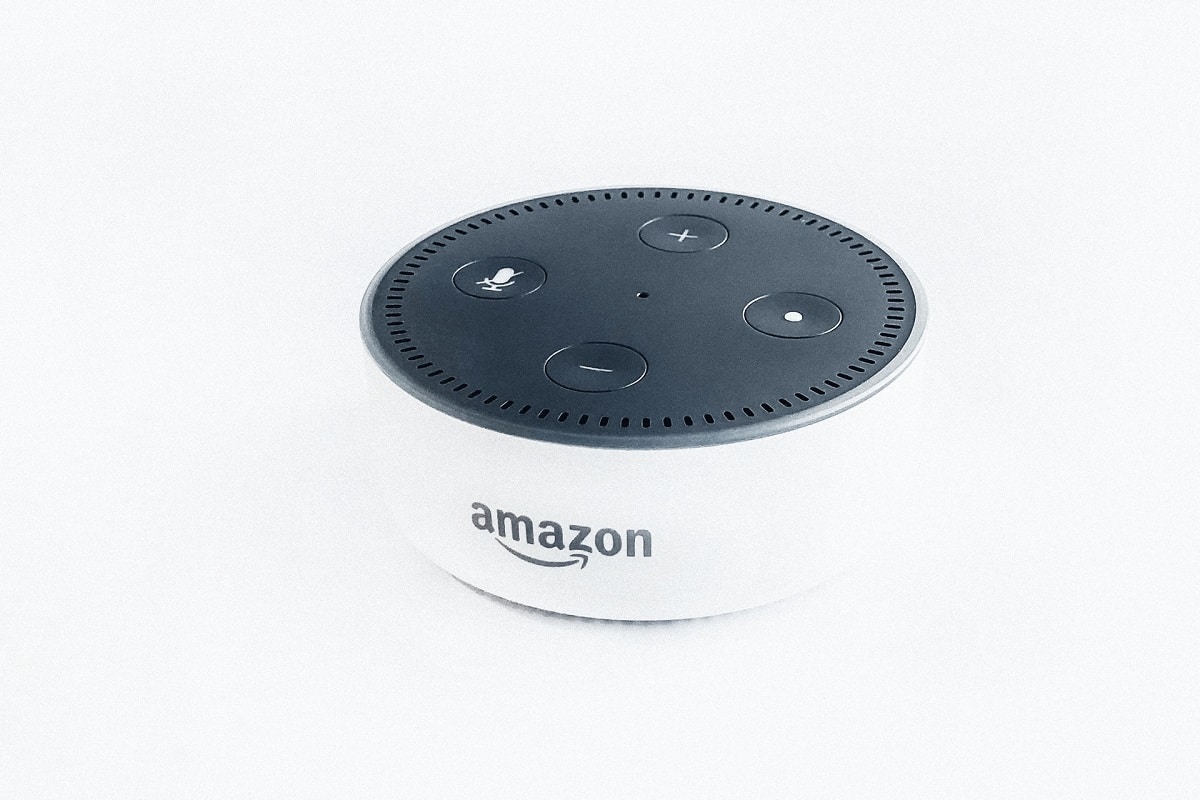VMware is a networking, virtualization, and cloud computing company based in Palo Alto, California. Diane Greene, Mendel Rosenblum, Scott Devine, Ellen Wang, and Edouard Bugnion founded the company in 1998.
In 2001, VMware entered the server market after the release of its hosted VMware Server and hostless VMware ESX Server. In May 2022, Broadcom announced its acquisition of VMware from Dell for $61 billion. [1]
VMware expanded its offerings to include Virtual Center, vMotion, and Virtual SMP in 2003 and VMware Cloud Provider in 2016. By Apr 2020, more than 225,000 offices had deployed VMware’s SD-WAN.
The company is one of the leading vendors in the SD-WAN market. In the fiscal year 2022, VMware generated around $12.85 billion in revenue. Its earnings have increased by over $6 billion since 2014. However, the company faces stiff competition from Cisco, Juniper, HPE Aruba, and others. [2]
Here is an in-depth analysis of VMware’s competitors and alternatives:
1. Cisco Systems
Year founded: 1984
Headquarter: San Jose, California
Cisco is a multinational tech company that offers communication equipment and networking solutions. The company pioneered the local area network (LAN) technology, becoming the first provider to link distant computers, and increased its revenue by $1.8 billion to $51.6 billion in 2022. [3]
Cisco and VMware compete in the enterprise network solutions market. Both have been locked in a fierce two-horse race for the No. 1 SD-WAN vendor spot.
In 2017, Cisco acquired Viptela to counter VMware’s acquisition of VeloCloudin. Cisco is the top VMware competitor in the network infrastructure and services market.
2. Juniper
Year founded: 1996
Headquarter: Sunnyvale, California.
Juniper is a leading provider of networking solutions and products, including routers and switches. Companies rely on Juniper’s devices to build a robust network infrastructure for apps based on a single Internet protocol network worldwide.
In 2021, Juniper had around 2,004 employees and generated $4.73 billion in revenue. The company made $5.15 billion between Sep 2021 and Sep 2022, a 10.61% year-over-year increase.
Both Juniper and VMware offer networking solutions; however, Juniper specializes in hardware. VMware’s wireless LAN solutions compete against Juniper’s offering.
Both companies cater to the networking needs of enterprises, public sector organizations, and service providers. In Dec 2022, Gartner named Juniper as the only visionary in the SD-WAN Magic Quadrant for the second year. Juniper is a worthy VMware alternative. [4]
3. Arista Networks
Year founded: 2004
Headquarter: Santa Clara, California
Arista Networks is an IT company that offers cloud-based and on-prem networking solutions. Organizations rely on Arista’s high-performance, energy-efficient cloud networks to reduce their carbon footprint.
In 2021, Arista’s annual revenues surged by 27.21% to $2.948 billion, and its annual revenue increased by 41.78% to $3.93 billion by September 2022. [5]
Arista specializes in software-defined networking (SDN) solutions and also offers data storage and computing services. The main competitive advantage for Arista over VMware is its innovative bundling strategy that pairs its SDN solutions with cheaper switches.
In 2021, Arista ranked third in the global switch market behind Cisco and Huawei. Arista is one of the top VMware competitors in the networking solutions market.
4. HPE Aruba
Year founded: 2002
Headquarter: Santa Clara, California
HPE Aruba is a wireless networking subsidiary of Hewlett Packard Enterprise. Like VMware, HPE Aruba also offers SD-WAN technologies.
In 2022, HPE Aruba had over 7,000 employees. Its parent employed around 60,200 people globally and made $27.78 billion in revenue in 2021. [6] HPE Aruba expanded its edge-to-cloud capabilities in 2020 after acquiring Silver Peak for $925 million.
Silver Peak offers SD-WAN that competes against VMware’s solutions. In 2022, Gartner recognized VMware and HPE Aruba in its WAN Edge Quadrant. HPE Aruba is a formidable VMware competitor in the SD-WAN market.
5. Nokia’s Nuage Networks
Year founded: 2012
Headquarter: Mountain View, California
Nuage Networks from Nokia simplifies the creation and allocation of consumable network resources. The platform helps enterprises adopt the cloud across core IT systems and digitally transform their businesses. In 2021, Nuage Networks had 300 employees and generated $66 million in revenue.
Nuage Networks and VMware compete in the SD-WAN market. In 2022, the Info-Tech Research Group named Nuage Networks in Data Quadrant for SD-WAN for the second year.
The company picked the top awards across five categories in 2021 and doubled that count in 2022. Nuage Networks is one of the fastest-rising alternatives to VMware. [7]
6. Dell Technologies
Year founded: 1984
Headquarter: Round Rock, Texas
Dell is a multinational company that offers telecommunication hardware and software. The company is known for its PCs, data storage devices, servers, network switches, cameras, and printers.
In 2022, Dell had around 133,000 employees and made about a total of $101.2 billion. [8]
VMware was part of Dell Technologies until its spin-off in Oct 2021. Now, the two companies plan to maintain a mutually beneficial strategic relationship, including the co-development of products and alignment on sales and marketing.
As a standalone firm, VMware competes against Dell in the virtualization sector. Dell is one of the fiercest VMware competitors. [9]
7. Huawei
Year founded: 1987
Headquarter: Shenzhen, China
Huawei is a Chinese tech company renowned as a global smartphone manufacturer, but it also offers networking solutions and cloud computing in more than 170 countries.
Huawei has around 195,000 employees and generated $91.3 billion (636.8 billion Yuan) in revenue in 2021. [10]
Huawei FusionCube competes against VMware vSAN in the HCS market. The main competitive advantage for FusionCube is that it formulates a single package of the network, storage, computing, and virtualization.
On the other hand, vSAN simplifies data storage and storage management. Huawei is a worthy alternative to VMware in the hyper-converged systems market.
8. Lenovo
Year founded: 1984
Headquarter: Quarry Bay, Hong Kong
Lenovo is a global telecommunication company that serves customers in over 180 markets. It powers and empowers organizations through innovative devices, infrastructure, services, and software. In 2021, this Fortune Global 500 Company made $60.74 billion in revenue.
Lenovo’s Xclarity and VMware compete in the virtualization market. In Oct 2021, Lenovo enhanced its partnership with VMware by delivering the industry-first 8-socket VMware vSAN-certified solution.
The company expanded its ThinkAgile VX HCI, ThinkSystem, and Lenovo TruScale for VMware Cloud Foundation. These advancements increase Lenovo’s competitive advantage over VMware. [11]
9. Extreme Networks
Year founded: 1996
Headquarter: San Jose, California
Extreme Networks is a networking company that provides software solutions and services. Its platform supports critical networking infrastructure for over 50,000 organizations across 120 countries. In fiscal 2022, Extreme Networks’ revenue increased by 10% to $1.1 billion.
ExtremeSwitching and VMware VRNI compete in data center and cloud networking markets. Organizations can also use Extreme’s AIOps and ExtremeCloud SD-WAN or VMware to simplify network management.
In FY2022, Extreme Networks reported double-digit growth in bookings and revenue due to increased demand for its enterprise networking solutions. Extreme Networks is one of the top VMware competitors. [12]
10. Alcatel-Lucent Enterprise
Year founded: 1919
Headquarter: Colombes, France
Alcatel-Lucent is a French software company. It offers communications, networking, and cloud solutions to telecommunications companies, ISPs, and data providers.
In 2022, Alcatel-Lucent had around 2,700 employees and more than 1 million customers globally.
In Oct 2022, Alcatel-Lucent expanded its strategic partnership with Avaya to help enterprises innovate. Organizations can access Avaya OneCloud CCaaS through Alcatel-Lucent’s platform and ALE Digital Age Networking solutions via Avaya. This integration increases Alcatel-Lucent’s competitive advantage over VMware. [13]
11. Allied Telesis
Year founded: 1987
Headquarter: San Jose, California
Allied Telesis is a global leader in connectivity solutions and intelligent networking tools. It also offers wireless APs for unified access networks and switches.
Allied Telesis has around 1,800 employees and generated over $302 million in revenue in 2021.
Allied Telesis delivers intelligent connectivity to simplify complex infrastructure projects for enterprises globally. In Jul 2022, Allied Telesis upgraded its Vista Manager EX.
This solution integrates with Forescout Continuum to enhance device discovery, security, and enterprise network management. Allied Telesis is an innovative VMware alternative. [14]
12. NETGEAR
Year founded: 1996
Headquarter: San Jose, California
NETGEAR offers networking products for enterprises and consumers. Its portfolio includes routers, switches, wireless VPN firewalls, adapters, and NAS devices. In 2021, NETGEAR made $1.17 billion in revenue. [15]
NETGEAR’s Nighthawk router series and NETGEAR Pro Safe GS108 switches have robust features. These top-selling networking products are suited for SMBs and home use.
On the other hand, VMware’s solutions cater to big enterprises. NETGEAR is one of the top competitors for VMware in the consumer market.
13. NVIDIA
Year founded: 1993
Headquarter: Santa Clara, California
NVIDIA is an IT company specializing in computer chips and graphics processing units. It is known for its GPUs, power gaming consoles, VR machines, and AI-powered devices. In 2021, NVIDIA had around 18,975 employees and generated $16.68 billion in revenue.
NVIDIA is renowned as a chipmaker. In 2021, the company announced plans to acquire ARM. This acquisition will make NVIDIA the third-largest semiconductor manufacturer.
However, NVIDIA also offers several products similar to VMware’s solutions, including virtualization software. [16]
14. Microsoft
Year founded: 1975
Headquarter: Redmond, Washington
Microsoft is a multinational company that offers computer systems, software, electronics, and services. Its Hyper-V competes with VMware’s hypervisor solutions.
In FY2022, Microsoft had 221,000 employees and generated $198.27 billion in revenue.
The main competitive advantage for Microsoft over VMware is its comprehensive product portfolio. Organizations can rely on Microsoft Hyper-V Server for virtualization, clustering, security, and Powershell commands. This solution handles more virtual CPUs per virtual machine.
On the other hand, VMware uses more virtual and logical CPUs per host. Microsoft Hyper-V is the best virtualization alternative to VMware for Windows users. [17]
15. ZTE Corporation
Year founded: 1985
Headquarter: Shenzhen, China
ZTE is a Chinese ICT company specializing in hardware and software for networking and telecommunications. It also operates carrier networks and terminals.
ZTE is one of the beneficiaries of the widespread adoption of 5G in China. In Nov 2022, US regulators extended a ban on ZTE telecom equipment due to data security risks. Although ZTE cannot sell in the US, it competes against VMware in other markets globally. [18]
References & more information
worthy VMware alternative.
Tell us what you think? Did you find this article interesting? Share your thoughts and experiences in the comments section below.












Add comment